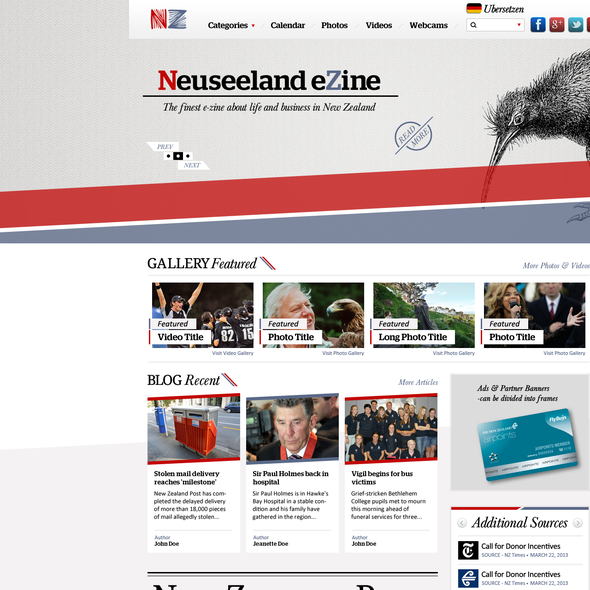More About News Websites
More About News Websites
Blog Article
News Websites Fundamentals Explained
Table of ContentsSome Ideas on News Websites You Should KnowIndicators on News Websites You Need To KnowThe Basic Principles Of News Websites Little Known Questions About News Websites.See This Report on News Websites
It was down in the UK and Brazil yet up some various other countries, such as Greece, Bulgaria, and Poland (News Websites). This year, for the first time, we asked concerning the different means that people prevent the information and found that around half of avoiders (53%) were trying to do so in a broad-brush or routine method for instance, by switching off the radio when the news began, or by scrolling past the information in social networkse.g. scrolling previous news, transforming channels when news begins. of avoiders examine sources less frequently. e.g. restriction to particular times of day, switching off notices, etc. of avoiders stay clear of some subjects. e.g. topics that bring down state of mind or rise anxiety. You stated that you try to proactively avoid information.

I'm possibly picking to find out more light-hearted stories than I utilized to presently. M, 51, UK Turning my back on news is the only way I feel I can cope in some cases. I have to purposely make the initiative to transform away for the purpose of my very own psychological health and wellness.
Little Known Questions About News Websites.
Careful avoidance of Ukraine information was highest possible in most of the nations closest to the dispute, reinforcing searchings for from our added survey last year, soon after the battle had started. Our information may not recommend an absence of rate of interest in Ukraine from nearby nations however rather a need to handle time or protect psychological health and wellness from the very actual horrors of battle.
Contrasting Finland with a politically polarised country such as the USA (see next graph) that is less impacted by the battle, we discover a very different pattern of subject avoidance. In the USA, we find that customers are more probable to avoid topics such as national politics and social justice, where discussions over problems such as sex, sexuality, and race have ended up being very politicised.
American politics are quite toxic these days. I find sometimes that I have to separate from stories that simply make me mad. F, 61, United States For some people, bitter and disruptive political disputes are a factor to turn off information altogether, however for some political upholders, avoidance is usually regarding shutting out perspectives you don't intend to listen to.

The Greatest Guide To News Websites
Some are seeking to make news much more easily accessible for hard-to-reach teams, expanding the news schedule, appointing more inspiring or positive news, or embracing useful or remedies journalism that give individuals a feeling of hope or personal agency. In our survey this year, internet we asked participants about their interest in these different methods.
This discusses why stories like Ukraine or nationwide politics do well with news regulars but can at the same time transform much less interested users away (News Websites). Selective avoiders are much less thinking about all kinds of news than non-avoiders yet in family member terms they do seem to be more curious about favorable or solutions-based news

The Only Guide to News Websites
2023). This might be real in the minute, but over time it seems to be leaving lots of people vacant and less completely satisfied, which may be undermining our connection with and depend on in the news. Across markets, total trust fund in information (40%) and rely on the sources individuals utilize themselves (46%) are down by a better 2 percentage factors this year.
Without a doubt, through the rear-view mirror, the COVID-19 trust bump is plainly noticeable in the adhering to graph, though the instructions of travel afterwards has been you could try these out mixed. Sometimes (e.g. Finland), the count on increase has actually been preserved, while in others the upturn looks more like a blip in a tale of ongoing lasting decline.
Some of the highest reported degrees of media criticism are found in countries with highest degree of distrust, such as Greece, the Philippines, the USA, France, and the United Kingdom. The most affordable levels of media objection frequent those with greater levels of trust fund, such as Finland, Norway, Denmark, and Japan.
The Basic Principles Of News Websites
This year we asked respondents about their preferences for text, audio and video clip when consuming information online. Usually, we discover that the bulk still favor to review the information (57%), instead than watch (30%) or pay attention to it (13%), however more youthful individuals (under-35s) are more probable to pay attention (17%) than older teams.
Behind the standards we find substantial and surprising country differences. In markets with a solid analysis practice, such as Finland and the UK, around eight in 10 still prefer to check out on the internet information, yet in India and Thailand, around 4 in 10 (40%) say they like to enjoy important site news online, and in the Philippines that proportion mores than fifty percent (52%).
Report this page